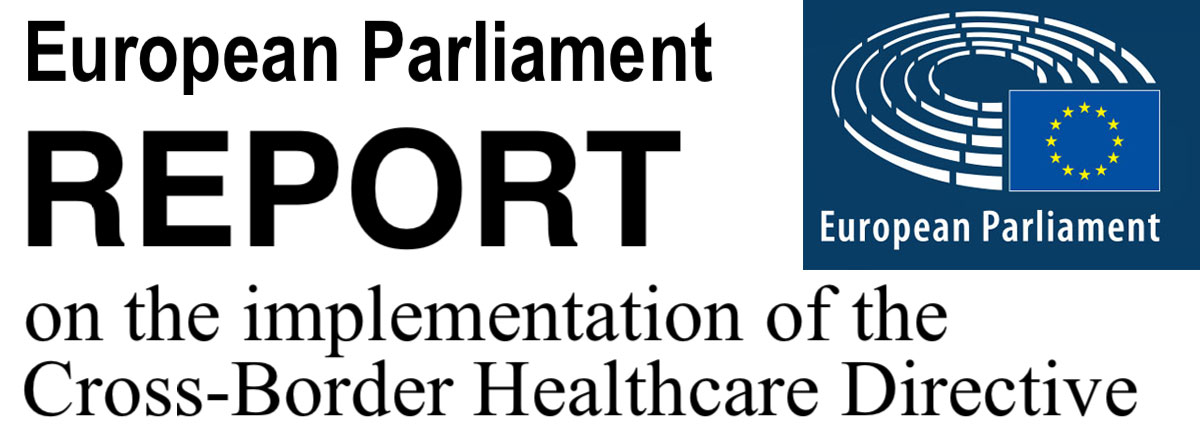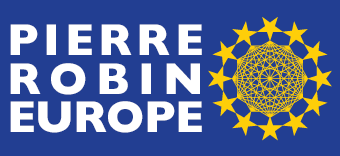European Parliament’s Implementation Report on the 2011 Cross-border Healthcare Directive
In a time of growing populist movements, deepening economic uncertainty, and foreboding Euroscepticism, the EU’s 2011 Cross-border Healthcare Directive was intended to serve as a prime example of the real and tangible benefits which the European Union could bring to its citizens. Leveraging the power of Europe’s common market, and solidly grounded in the EU’s four fundamental freedoms – including the free movement of goods and services, and the free movement of people – the 2011 Directive boldly declared that EU citizens had the right to access medical services anywhere in Europe, without facing undue resistance, obstacles, obstruction or delay.
Eight years later, the great optimism engendered by the 2011 Directive has for many EU citizens given way to frustration, disappointment and cynicism.

European Parliament’s Implementation Report on the 2011 Directive
In the report, the authors underscore the importance of the 2011 Directive in the everyday lives of EU citizens: “Cross-border patient mobility is an important policy issue”. The report also points out that for EU citizens seeking highly specialised medical services, cross-border healthcare is often the best and only option for obtaining a life-changing treatment: “…for certain groups of patients, due to rare diseases… cross-border healthcare is the most appropriate and accessible care.” However, the parliamentary committee:
“Regrets that patient mobility for planned healthcare, and especially specialised care, in other Member States remains low… the number of patients availing themselves of their right to cross-border care, as provided for under the directive, including preventive medical tests, scans and health checks, is only growing very slowly…”
The parliamentary committee observes that:
“…in a considerable number of Member States, the obstacles that patients encounter when dealing with health systems remains significant… certain prior authorisation systems appear to be unduly burdensome and/or restrictive…”
And:
“Notes with concern that in some Member States insurance companies have discriminated arbitrarily or created unjustified obstacles to the free movement of patients and services…”
In the understated language typical of such official reports, the parliamentary committee:
“…expresses disappointment that a significant number of Member States have not effectively implemented the requirements for guaranteeing patients’ rights; urges Member States therefore to ensure its proper implementation… while respecting the principle of the free movement of persons within the internal market…”
And the committee reminds Member States that:
“…any limitation on the application of the directive, such as prior authorisation requirements or limitations on reimbursement, should be necessary and proportionate and not give rise to arbitrary or social discrimination, must not put up unjustified obstacles to the free movement of patients and services…”
The committee, recognising that such polite reminders may fail to bring Member States into compliance with the 2011 Directive:
“Calls on the Commission and the Member States to put in place or to enhance an appropriate complaint mechanism for patients seeking treatment abroad, should their rights not have been respected…”
This official EU report published by the European Parliament – the same EU body that debated, drafted, voted on and passed this legislation – expresses both disappointment and concern.
For us, a European family, this much celebrated law, the 2011 Cross-border Healthcare Directive, has been nothing more than a false hope, a cruel and cynical façade, covering up the non-cooperation and outright obstruction which we actually faced right here in Western Europe. In theory, planned cross-border healthcare is possible in the EU, especially for patients seeking highly specialised treatments. In practice, EU citizens avoid it almost entirely. Our horrendous experience in France, struggling unsuccessfully to obtain authorisation for cross-border healthcare in Germany, helps explain why.
While our daughter Lysiane’s case is well documented, the stark reality is that our experience in France – the resistance, non-cooperation and obstruction we faced – is not exceptional at all. The European Parliament just confirmed this fact in their official 2011 Directive Implementation Report, and almost any man woman or child suffering from a rare disease or complex condition can confirm this fact for you as well, first-hand.
My family certainly wants justice – we want our S2, the cross-border healthcare authorisation form which the French government illegally and shamefully denied. But as we have stated elsewhere, our struggle to exercise our legally guaranteed right to access cross-border healthcare in the EU is not just about our daughter Lysiane. And it is not just about us. And it is not just about other babies who happen to be suffering from this particular rare disease, Pierre Robin Syndrome. It is broader than that.
Lysiane’s case raises an issue of wider principle which matters to all EU citizens, and which affects their daily lives: if a newborn baby suffering from a rare disease, immobilized in an intensive care unit and connected to a ventilator machine, doesn’t have the right to obtain a highly specialised, medically proven and cost-effective treatment for her rare disease in another EU Member State – then who does have the right to cross-border healthcare?
The European Parliament’s 2011 Directive Implementation Report paints an unflattering portrait of Member State commitment to EU law. The experts will say there are many complex issues involved here, which is true, but what it comes down to is this: either EU law means something, or it does not. If it means something, then France and other Member States should respect it. And if they do not respect it, then the European Commission should do its job, and enforce it. As the European Commission declared in an official statement (2017/C 18/02):
“The European Union is founded on the rule of law and relies on law to ensure that its policies and priorities are realised in the Member States. The effective application, implementation and enforcement of the law is a responsibility entrusted to the Commission by Article 17(1) of the Treaty on European Union… Infringements must be dealt with promptly. The Commission and the Member States need to proceed expeditiously in investigating breaches of the law.”
EU Health Commissioner Andriukaitis, in 2017 we formally alerted you to Lysiane’s case. It is 2019 now and we are still struggling to obtain justice in this case. The European Parliament’s Implementation Report on the Cross-border Healthcare Directive makes it clear that there are many other cases just like ours: ongoing illegal obstruction by Member States which are violating patients’ rights to access cross-border healthcare, even for rare disease treatments, in spite of EU law. During a European Parliament debate held on 12 February 2019, you Commissioner Andriukaitis solemnly declared the following:
“I would like to stress once again that the Commission will take deliberate action when the spirit and letter of the Directive is not upheld.”









